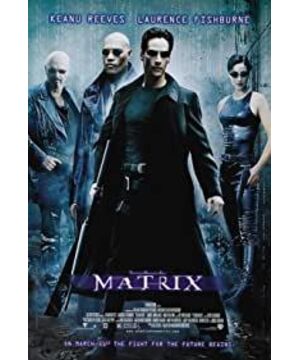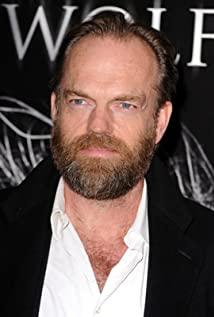Today, I finally saw the official trailer of The Matrix 4, which has already been rumored, at station B. I was nothing (not even an embryo) when the brothers (now sisters) movie came out in 1999. But now, the world I live in is more "Matrix" than the future they envisioned at the time, and as Wachowski said in the interview, today's world is more and more for her to look at the classics she once created. Therefore, I do not strongly agree to say that The Matrix is fried rice, because today's reality needs a Matrix just as much as it did at the time.
—————————————————————-
What was part1 of The Matrix Trilogy?
In The Matrix 1, neo once appeared in a book from a pile of white powder, "Simulation and Simulation" written by postmodernist philosopher Baudrillard in 1993. It can be said that this book reflects the concept of The Matrix: In The Matrix, Wachowski pushed the symbolic landscape constructed by consumerism to the extreme, that is, the symbol is completely divorced from reality.
This is almost the third stage in the three-sequence of consumerism in Baudrillard's theory. Today, it is a post-modern model that is dominated by code under the blessing of the Internet and replaces commodity consumption with symbolic consumption.
What’s more interesting is the movie’s metaphor for the reality of consumerism under consumerism. The machine in the movie needs people as a source of electricity. And the operation of this society has transcended the human dimension in ontology.
The Matrix conceived of a model of an experience machine, (let’s not talk about Nozick’s theory here) or a future version of Plato’s cave metaphor, but our reality is almost nothing more than that. In fact, most people say that if we can have the opportunity to immerse ourselves in a virtual world of enjoyment, I actually have a hard time saying no.
The temptation of hedonism in the narrow sense is irresistible, and even Benjamin himself, a pioneer of consumerism research, is extremely contradictory in the face of "the temptation of the window".
But Baudrillard has an extremely profound insight into this. He believes that the power of consumerism has surpassed reflection itself. When we criticize, we have acquiesced in a premise, that is, we have been attracted by consumerism. In Baudrillard's time, advertising already used anti-advertising as a means of propaganda) Therefore, the criticism of consumerism can only stay at the stage of a second-order ideology, which covers everything and cannot be broken.
Therefore, Baudrillard is pessimistic about consumerism, and Baudrillard in the late period moved towards nihilism.
And the Wachowski sisters should agree with this, so they filmed The Matrix, they built neo, a transcendent existence, trying to change the tone of the world with this transcendent little other neo, Compared with the ruthlessness of Baudrillard's philosopher, this kind of idea has the romantic color of the artist. In psychoanalytic terms, neo is the matrix of the matrix, the Big Other of the Big Other. Wachowski relies on neo to reverse the teleology from order to human love (it is still the classic "love saves the world" and also pays more attention to love. I think this is a bit funny, compared to the second, very fantasy) but in fact this is impossible
So The Matrix seems to convey an idea that goes beyond the film itself, and in a sense, Wachowski is our neo. For those who could understand, it was quite shocking, and some even went to extremes to commit suicide or even kill, and even shouted and waited for Morpheus to show up when they were arrested.
—————————————————————
part2 Guy Debord and "Good Movies"
Since we mentioned movies and consumerism, we have to mention Guy Deborah. In "Society of Landscape", Guydebo said that landscape is "the basic constitutive principle of modern society dominated by expression", landscape dissolves the unity of the world, and reality and landscape are divided. While Wachowski pushes the landscape to the extreme in the film, we might as well understand each world created by the matrix as a landscape, which is completely divorced from reality. Personally, I feel that Guydebo's insight in this area is not as good as Baudrillard's (although I haven't read the Spectacle Society). But I want to mention him because he is not only a philosopher, but also an avant-garde director. As early as 1952, he filmed "Scream for Sade" as a director. And his views on the film had a strong impact on me for a time.
Knock on the blackboard! ! ! ! ! ! ! ! ! ! ! ! ! ! ! !
Guy Debord believes that film is the most representative "spectacle" under consumerism. (Although there are more powerful short videos in today's society) The voyeuristic experience that the audience feels when watching the movie will make the audience feel that they are in the position of the omniscient and omnipotent big Other and thus accept the concept of the movie before reflection. But this is a hypocritical Big Other gesture, because even if there is a real Big Other, it should be the director, and the Big Other is always an illusion. Agnez Varda said that the appearance of movies has tripled life expectancy, but is it really true? The audiovisual experience of film can give us a first-person perspective, but it is always a landscape perspective.
In a sense, watching a movie = experience machine
So what makes a good movie?
It can be said that when the publication of the Sixth Art Manifesto recognized the existence of film as a work of art. I think this is a very important event for art, and the "divineness" brought about by the instantaneity and eternity of traditional art is inappropriate for film. Because movies are reproducible. Of course, film is very powerful as a way to carry private sensory expression, but the reproducibility of film determines that it cannot get rid of the dimension of cultural product.
The quality of cultural products is ultimately judged by the audience. I do not disrespect the artistic attributes of the film and the high-quality concepts that can be conveyed, but I have already discussed that the fragmentation of the landscape is inevitable. So it's always unavoidable to evaluate a movie by talking about both word of mouth and box office.
After all, movies can never be separated from the attributes of cultural products, they need word-of-mouth and box office,
Are the first trilogy of The Matrix a good movie? I think yes, as evidenced by the $1.3 billion box office total of the three films 20 years ago
—————————————————————
Part3 Will The Matrix 4 be Blade Runner 2049?
There are so many book bags hanging above, and finally I will simply talk about, will The Matrix 4 be a good movie?
The lack of creativity in Hollywood is already visible to the naked eye. The Hero with a Thousand Faces, something that George Lucas played decades ago, is now enjoyable for audiences to watch. What's even more ironic is that Marvel movies are even considered "creative", and Charlie's Angels, Men in Black and Top Gun can be picked up and shot. I said that aliens are so boring and think about your earth every day.
Traditional movies have fallen apart under the impact of streaming media
To say that the quality of the old ip remake is excellent, only Blade Runner 2049 is. After all, it's Valenneuve's job.
But it was Valeneva who won the fame, and Sony who lost. Sony's revenue in 2018 was so embarrassing that it made an assessment of abandoning Sony Pictures.
Maybe Blade Runner has always been a more wonderful movie, because its influence in the history of movies always seems to block those Marvel low-IQ babies who will forward love u 3000times in the circle of friends. Therefore, its final box office was only 300 million, which was a huge loss.
But I am very grateful, because it made me familiar with my screen goddess
But The Matrix 4 should not lose money. After all, Wachowski is far less "literary" than Valenneuve. I don't need to go into details about the look and feel of the first three parts of The Matrix. The famous scene it left behind is indeed more appealing to the audience than lines like "I have seen things that you humans can't believe, I have seen warships on fire at the end of the constellation Orion, I have seen..." too much.
And I also believe that since Wachowski can bring the former Matrix, it should also be able to cut through the reality that is getting closer to the future envisioned by Baudrillard. From this dimension, I believe in their sense of responsibility as creators of cultural products.
—————————————————————-
Anyway, this movie can't lose its quality.
View more about The Matrix reviews











